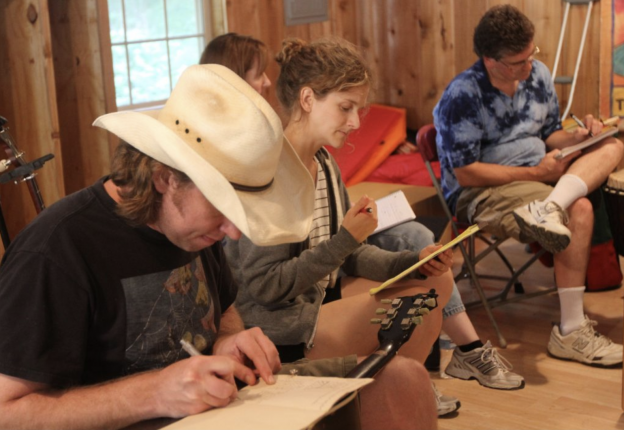I have been very fortunate to be an Instructor and Administrator at Victor Wooten's Center for Music and Nature since its inception in 2000. Now beginning our 19th season, we have had the pleasure of aiding in the development of hundreds of students from around the globe. Our programs offer 5 to 18 days of information, instruction and performances from some of the most respected, world renowned Musicians in the industry.
 Can you imagine spending hours learning from the likes of Marcus Miller, Will Lee, Michael Manring, Christian McBride, Omar Hakim, Danny Gottlieb, Dennis Chambers, Howard Levy, Mike Stern, Edgar Meyer, and many other highly respected artists? Can you imagine the amount of information?
Can you imagine spending hours learning from the likes of Marcus Miller, Will Lee, Michael Manring, Christian McBride, Omar Hakim, Danny Gottlieb, Dennis Chambers, Howard Levy, Mike Stern, Edgar Meyer, and many other highly respected artists? Can you imagine the amount of information?
The importance of taking notes cannot be over emphasized. Research has shown that the retention of information increases dramatically with good note taking and review. Note-taking engages you in the experience and helps you stay alert, helps you organize and highlight information, and provides you with lasting record of the information provided to you for future review and learning. Don't think you'll just remember things from the class or your private lesson. You won't.
"The brain is for having ideas, not holding them." - David Allen, Getting Things Done
There has been lots of research into the effectiveness of taking notes by hand vs. on a laptop, but the fact remains that taking notes helps you retain information. There are many methods for taking notes. Cornell, Outline, Mind Map, Sentence, and Charting, are common. It is important to use or modify a system that works best for you.
Here are a few tips to good note-taking:
- Listen. REALLY Listen. Intently listening keeps you engaged. We ALL should LISTEN more closely.
- Don't be distracted. Sometimes we get so focused on how we're taking notes that we miss information. Don't worry about being neat. WRITE. This gives you the prefect opportunity to review if you want to clean them up later. Rewrites are great.
- Develop a system that works for you. The systems that I listed above are all good, but only if they work in a way that helps you retain the information. All can be modified and personalized.
- Ask Questions to clarify. Don't leave a class with unanswered questions. You may never get the chance at another time.
- Review your notes. Go over your notes as soon as possible. Discuss the information with someone else from the class or even with someone who wasn't in attendance. Verbalizing what you've learned helps you understand more clearly. It may even be a good idea to rewrite your notes if you want to clean them up or clarify some concepts.
- Capture Ideas and Concepts, not verbatim transcriptions of the class. This can also be a good prompt for further study and research on your part.
Finally, when taking notes in your private lessons, Music lectures and classes, I strongly suggest using a Music notebook. Spiral-bound Staff paper blank books or Moleskine® styled notebooks are widely available and make it easy to write down Musical examples. Start using or review these practices in your note taking and see how they affect your knowledge retention and implementation. I think you'll be very happy with the result!

